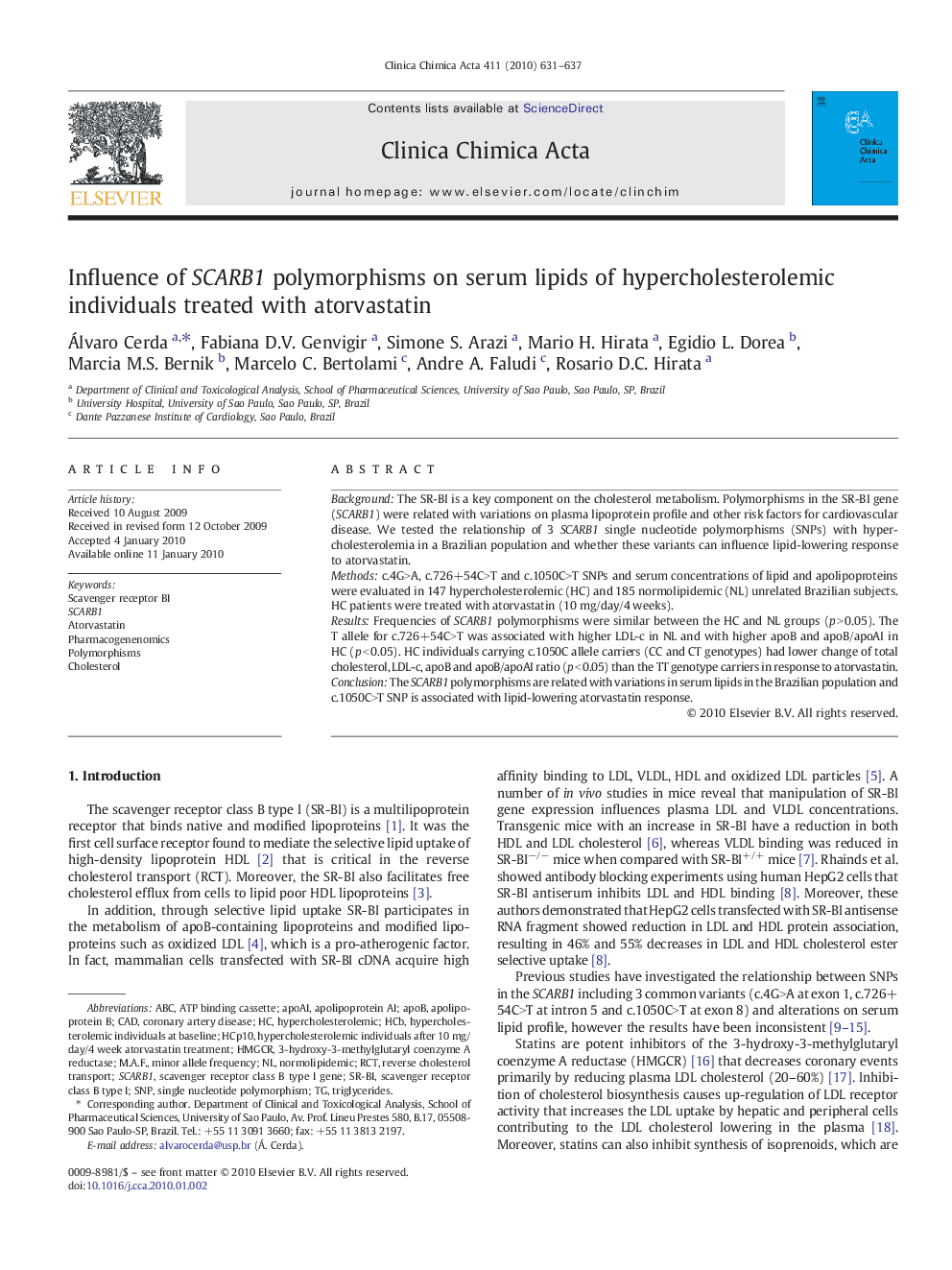| Article ID | Journal | Published Year | Pages | File Type |
|---|---|---|---|---|
| 1966996 | Clinica Chimica Acta | 2010 | 7 Pages |
BackgroundThe SR-BI is a key component on the cholesterol metabolism. Polymorphisms in the SR-BI gene (SCARB1) were related with variations on plasma lipoprotein profile and other risk factors for cardiovascular disease. We tested the relationship of 3 SCARB1 single nucleotide polymorphisms (SNPs) with hypercholesterolemia in a Brazilian population and whether these variants can influence lipid-lowering response to atorvastatin.Methodsc.4G>A, c.726+54C>T and c.1050C>T SNPs and serum concentrations of lipid and apolipoproteins were evaluated in 147 hypercholesterolemic (HC) and 185 normolipidemic (NL) unrelated Brazilian subjects. HC patients were treated with atorvastatin (10 mg/day/4 weeks).ResultsFrequencies of SCARB1 polymorphisms were similar between the HC and NL groups (p > 0.05). The T allele for c.726+54C>T was associated with higher LDL-c in NL and with higher apoB and apoB/apoAI in HC (p < 0.05). HC individuals carrying c.1050C allele carriers (CC and CT genotypes) had lower change of total cholesterol, LDL-c, apoB and apoB/apoAI ratio (p < 0.05) than the TT genotype carriers in response to atorvastatin.ConclusionThe SCARB1 polymorphisms are related with variations in serum lipids in the Brazilian population and c.1050C>T SNP is associated with lipid-lowering atorvastatin response.
